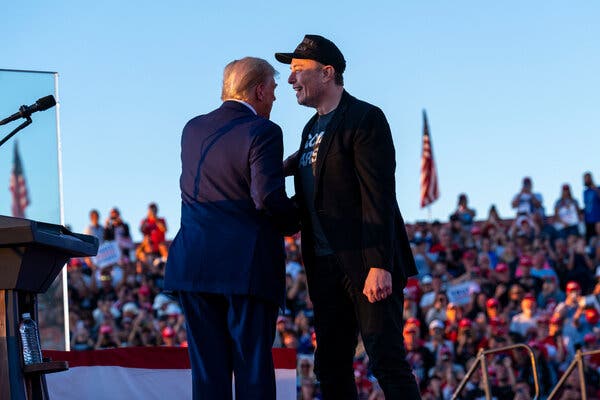Elon Musk Launches the ‘Party of America’ Amid Political Rift and Budget Controversy
In a surprising political development, billionaire entrepreneur Elon Musk announced the formation of his own political party, the “Party of America,” on Saturday. The move comes just days after a public disagreement with former President Donald Trump over a contentious budget bill that has stirred significant debate across the political spectrum.
Musk revealed the news via his social media platform, X, framing the new political initiative as a necessary step to “restore freedom” in the United States. His announcement followed through on a prior warning that he would establish a political party if Trump’s proposed budget bill were passed into law. After the legislation was signed on Friday—coinciding with Independence Day celebrations—Musk launched a poll asking his followers whether they supported the creation of a new political entity. Out of 1.2 million respondents, 65 percent voted in favor, prompting Musk to officially declare the formation of the Party of America.
The billionaire’s decision marks a sharp turn in his political trajectory, particularly considering his previous alignment with Trump and the Republican Party. Once a key supporter and major donor to Trump’s 2024 election campaign, Musk publicly distanced himself from the former president due to concerns about the financial implications of the budget bill. According to projections, the bill could lead to an increase in the federal deficit by $3.4 trillion by 2034—an outcome Musk views as fiscally irresponsible.
Musk did not hold back in his critique of both major American political parties. In his post-announcement commentary, he described the current U.S. political landscape as having devolved into a one-party system dominated by individuals who act like “pigs gorging themselves.” This biting criticism underscores his frustration with what he perceives as entrenched corruption and inefficiency within traditional political structures.
Looking ahead, Musk has made it clear that the Party of America will not shy away from challenging the status quo. He pledged to target Republican lawmakers who supported the controversial budget bill in the upcoming 2026 midterm elections. This indicates a strategic focus on holding elected officials accountable for decisions that Musk and his supporters view as detrimental to national interests.
While still in its infancy, the Party of America’s emergence raises intriguing questions about the future of U.S. politics. Given Musk’s immense influence and vast following—both online and offline—the new party could potentially disrupt existing political dynamics. Whether this venture will gain traction beyond social media engagement remains to be seen, but its launch undeniably signals a growing appetite among certain segments of the population for alternative political representation.
Musk’s foray into formal political organizing also reflects broader societal trends, where high-profile figures outside traditional political circles are increasingly stepping into the fray. As debates around economic policy, government spending, and political reform intensify, the Party of America may serve as a barometer for shifting public sentiment and dissatisfaction with conventional governance models.
As the party begins to outline its platform and strategy in greater detail, political analysts and citizens alike will be watching closely to see how this unconventional experiment unfolds.







